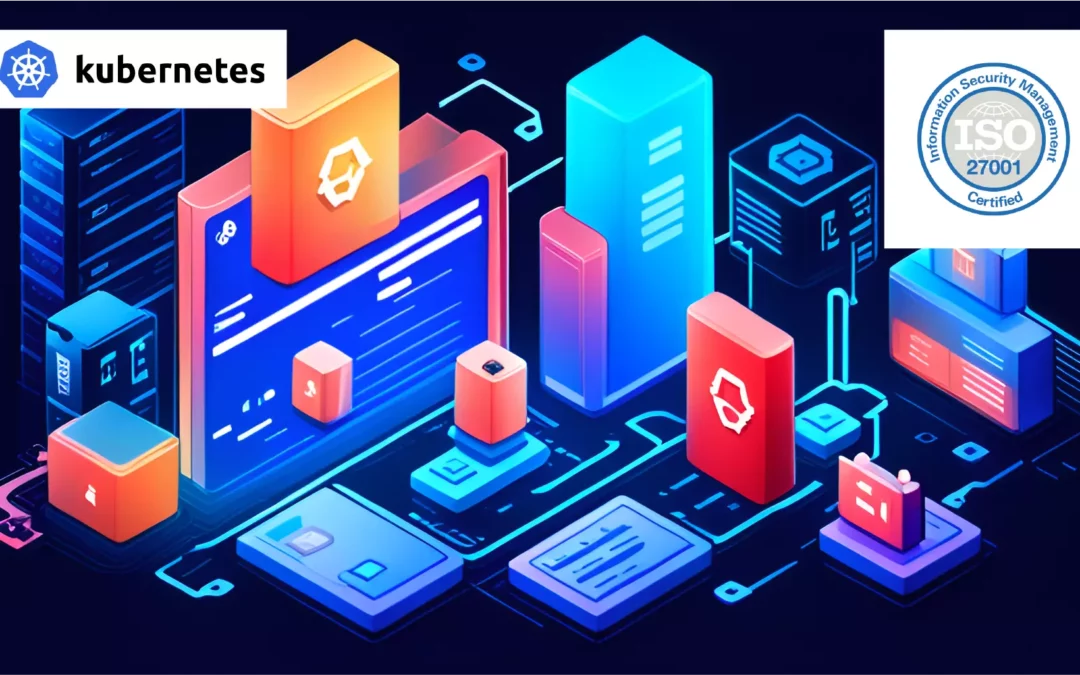Organizations seeking to establish best practices for security management often pursue ISO 27001, an internationally recognized compliance framework. The ISO 27001 framework guides professionals in the Kubernetes ecosystem, ensuring adherence to security standards, best practices, and regulations within Kubernetes environments.
By maintaining Kubernetes security compliance, organizations can effectively protect sensitive data, prevent unauthorized access, and mitigate security risks. Compliance also enables organizations to unlock the full potential of Kubernetes technology, confidently exploring advanced features and scaling their infrastructure.
Moreover, following industry standards like ISO 27001 builds trust with stakeholders and ensures the integrity and confidentiality of their data, which is crucial as more enterprises adopt Kubernetes.
What is PCI DSS compliance and why is it important?
PCI DSS stands for “Payment Card Industry Data Security Standard,” or “PCI compliance” for short. It is a regulation created by the major credit card brands (e.g. Visa, MasterCard, AmEx, Discover, and others) with the primary purpose of protecting against credit card fraud.
Understanding ISO 27001
ISO 27001 is an internationally recognized standard developed by non-governmental organizations, making it a voluntary compliance framework rather than a regulatory requirement. While organizations are not legally obligated to comply with ISO 27001, adhering to its standards can enhance an organization’s reputation and credibility.
Businesses often rely on the ISO 27001 framework to define the best practices they should follow when managing IT security. Doing so serves to prove a commitment to security. It also allows organizations to demonstrate ISO 27001 compliance and prove to partners and customers that they have implemented robust information security controls.
In addition, following the ISO 27001 framework is a smart way to discover compliance risks. Organizations that implement ISO 27001 audits may help them find security risks or vulnerabilities that would trigger compliance violations under regulatory frameworks. If a voluntary ISO 27001 audit identifies security vulnerabilities, businesses can address them before they result in fines or sanctions under a regulatory compliance law like the GDPR or HIPAA.
The Role of ISO 27001 Compliance
The ISO 27001 standard’s main objective is to help organizations develop, implement, and enforce an information security management system (ISMS). This ISMS describes the controls, processes, and procedures in place to ensure the confidentiality, integrity, and availability of the data in the company’s possession.
However, the ISO 27001 controls do not specify which tools, processes, or practices businesses must follow to secure kubernetes environments. Instead, they leave it up to organizations to determine how to interpret and apply security controls to Kubernetes. As a result, numerous approaches to achieving ISO 27001 compliance with Kubernetes exist.
Organizations employ ISO 27001 to systematically identify, assess, and manage information security risks in Kubernetes environments. They can also rely on it to define and implement Kubernetes-specific security controls, policies, and procedures. The standard promotes security measures that adhere to industry best practices and regulatory requirements.
The ISO 27001 framework provides organizations with guidance on identifying security risks, developing risk management plans, implementing necessary security measures, and monitoring and evaluating the effectiveness of their security controls. Finally, ISO 27001 stresses the need for regular audits and assessments to ensure continuous compliance and improvement.
Automating ISO & Kubernetes Security Compliance
Kubernetes compliance solutions that rely on manual inspections and audits to ensure compliance can prove to be time-consuming and error-prone in an ephemeral environment such as Kubernetes. In addition, without automation and continuous controls, ensuring compliance in Kubernetes is onerous.
Organizations that automate Kubernetes compliance with ISO 27001 streamline their security practices and ensure ongoing adherence to information security standards. By leveraging automation tools and technologies, they can efficiently address the complexities of maintaining ISO 27001 compliance—even in a dynamic Kubernetes environment.
The ability to automate Kubernetes compliance simplifies the implementation and monitoring of security controls, allowing for real-time visibility into compliance status. It also enables organizations to automate routine tasks such as vulnerability scanning, configuration management, and access controls, reducing the burden of manual efforts and minimizing the risk of human error.
Furthermore, automation facilitates consistent and standardized compliance practices across multiple Kubernetes clusters and deployments. Organizations can define Kubernetes compliance policies as code and enforce them programmatically. This approach ensures that configurations remain aligned with ISO 27001 standards and allows for timely resolution of any deviations.
Finally, automating compliance workflows enables organizations to improve the efficiency of their ISO 27001 audits and assessments. For instance, generating automated reports and documentation streamlines the evidence-collection process, facilitating faster and more accurate assessments of compliance status.
Conducting ISO 27001 Audits and Assessments for Kubernetes Compliance
Conducting ISO 27001 audits and assessments tailored for Kubernetes compliance entails systematically evaluating how well an organization has adhered to the standard within Kubernetes environments. To identify gaps and ensure compliance, auditors assess security controls, review documentation, and analyze policies.
Regular ISO 27001 assessments are essential for identifying vulnerabilities, gaps, and opportunities for improvement in Kubernetes security compliance. They proactively detect flaws, reduce risks, and enable organizations to implement corrective actions.
ISO 27001 assessments foster a culture of continuous improvement by evaluating the effectiveness of controls, identifying emerging threats, and adjusting security strategies. They also demonstrate to stakeholders and regulatory authorities their commitment to maintaining a secure Kubernetes environment.
Novel Kubernetes Compliance Approaches – Shift Left
The advantages of Kubernetes compliance with ISO 27001 continue to incentivize the integration of security measures into the development and deployment pipelines. This approach ensures that security considerations are embedded throughout the entire lifecycle of applications and infrastructure within the Kubernetes environment.
Organizations are also becoming adept at using Infrastructure as Code to automate and enforce compliance controls, container image scanning for vulnerability management, Kubernetes-native security solutions, and DevSecOps methodologies.
Finally, the proliferation of cloud-native security tools and services designed explicitly for Kubernetes environments simplifies compliance management. These trends highlight the importance of proactive, automated, and scalable solutions that ensure continuous compliance while allowing organizations to benefit from the agility and scalability of Kubernetes technology.
